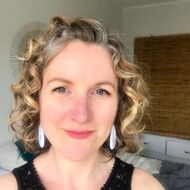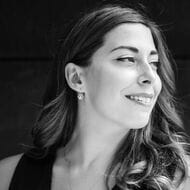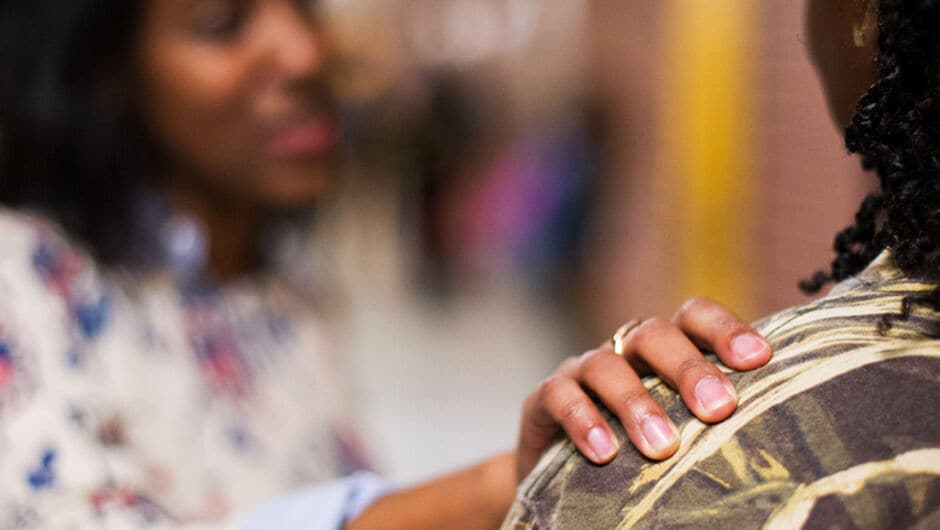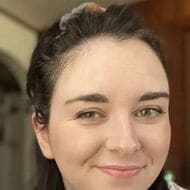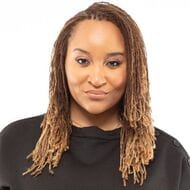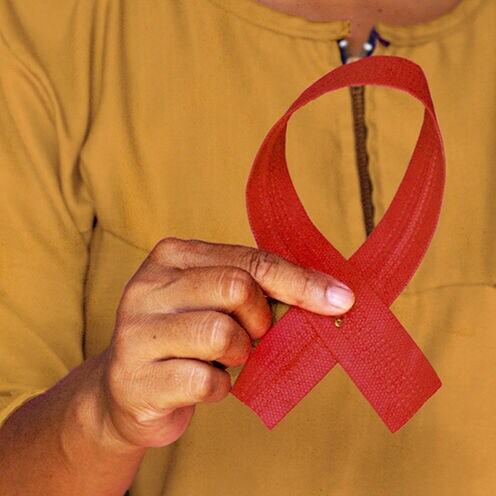
Talking About HIV/AIDS Can Help Save Black Lives
Black educators share how their lives have been touched by the HIV/AIDS epidemic and the power their stories hold for effecting change in schools and communities.
Silence won’t help to end the HIV/AIDS epidemic. Neither will ignorance.
Instead, both cause additional harm, said Tim’m West, who leads Teach For America’s LGBTQ+ Community Initiative and recently shared his own personal journey with HIV.
“We not only make it difficult for the people who are directly impacted with AIDS or HIV when we don't have information in schools, but we also prevent their friends and family members from knowing how to respond to them,” West said. “We often say it takes a village. But if the village doesn't have the information, we prevent the people in our lives from being the support that we need to have a healthy community.”
Promoting healthy communities is the focus of National Black HIV/AIDS Awareness Day on Feb. 7, a grassroots-education effort to raise awareness for increased HIV education, prevention, community involvement, and treatment among Black communities.
Black Americans account for 13% of the U.S. population but 42% of new HIV diagnoses in the United States, according to the CDC. Among women, 59% of new HIV diagnoses are Black.
Higher rates of poverty among Black communities, a result of decades of systemic racism, mean that many communities have less access to quality healthcare, housing, and education, all of which compound the complications of living with HIV and AIDS. Lifesaving treatments are now available, but stigma and fear around HIV/AIDS, homophobia, discrimination, as well as distrust of a medical establishment that has a history of racist practices, also play a role in preventing Black Americans from accessing care.
One Day invited a panel of Black educators, facilitated by West, to discuss over Zoom their experiences at the intersection of HIV/AIDS and education in the Black community. They also share the work they are doing on the ground and through Teach For America’s national and regional LGBTQ+ Prism coalitions to advocate for more HIV education and support for Black youth.
- Tim’m West, senior managing director of Teach For America’s LGBTQ+ Community Initiative
- Darius Rucker (St. Louis ’12), director of health support services at Williams and Associates, Inc., a St. Louis-based community health organization
- Kevin Tarver, an HIV/AIDS prevention educator and freelance writer in Birmingham, Alabama
- Audrey Momoh (Bay Area '16), education program associate for the office of Oakland Mayor Libby Schaaf.
West: There is still a lot of work we can do in education and at Teach for America around discussing HIV/AIDS more openly. What is your connection with HIV/AIDS and what opportunities are available for us to address stigma in our communities?
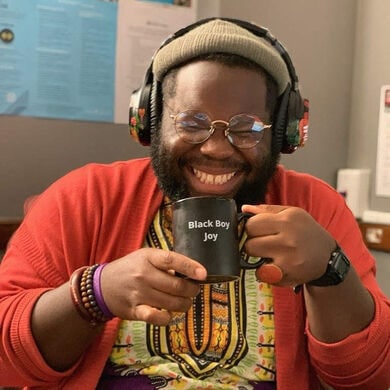
Tarver: Growing up in Birmingham, Alabama, and identifying as a gay Black man, there weren’t many resources out there. So part of the reason why I wanted to get involved in sex education is to point people in the right direction.
Through my experience, it's always been important to meet people where they are when discussing sexual health because there are still gaps in who has had these conversations, whether the person is 13 or 24 or older. I've spoken about sexual health to people who are in their 50s, and they still have questions that they’ve been afraid to ask.
When you’re talking about sex, sometimes we also have to understand that there's often a lot of trauma that we have to navigate through. It can be triggering when having conversations about sex, especially if our gateway into sex has not been the most beautiful experience.
Momoh: My entry into this conversation happened pretty late, and I think that has a lot to do with the lack of education about HIV, and about sex in general, but especially sex that has anything to do with the queer community. My entry point was a friend of mine in TFA who happens to be HIV positive and seeing how they were mistreated and isolated when they really needed someone to say, “I've got you.” I felt like the leaders we had entrusted to do that kind of walked away. That really broke my heart. That person is family to me.
I also think I had a lot of ignorance about just how much stigma there is. Having HIV in 2021 is not a death sentence, but you wouldn't know that because we don't really talk about it. A lot of media that covers HIV only talks about the ‘80s and what it was like in the past.
As an ally, I realized that I needed to educate myself and make sure that the high school students I was teaching at the time we're having these conversations as well.
West: Those of us who are queer also know that there are additional closets that we can decide to live in or out of. Darius, you gave a speech a few years ago at a Brave Education summit that was incredibly moving. You could have easily talked about growing up as a Black gay male and left it at that. What gave you the courage to use this opportunity to talk openly about your HIV status?
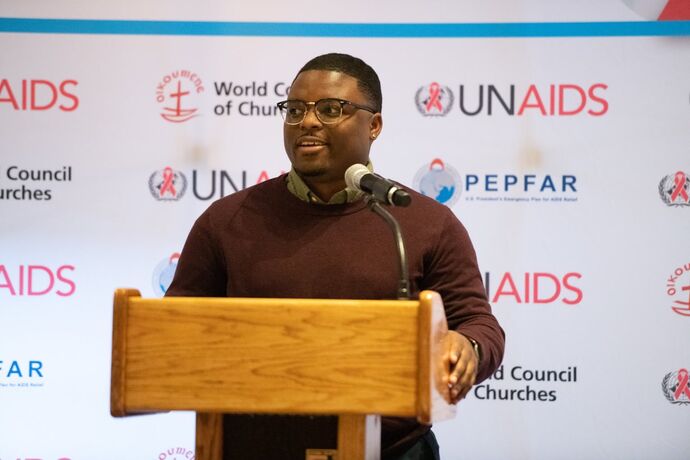
Rucker: It was a bit nerve-racking, especially to bring that part of myself into a space that wasn't traditionally held for sharing something so personal. But one of my sources of strength was my work here in St. Louis.
When I was teaching, I spent time connecting with the community and specifically connecting with my Black queer self. Oftentimes these connections happened in youth spaces or spaces specifically set aside for folks to have these conversations. So I was already having these conversations in other professional spaces. But what was very glaring was that these conversations weren’t happening in my TFA spaces or spaces that were not related to HIV or health.
Tim’m, you were really the reason I thought that I could even include my HIV status in my speech because I knew you would be in the room. And if you were in that room, you were going to hold it down for me. As much as you talk about my speech inspiring and pushing you to write about your HIV status, you were one of the biggest reasons why I could definitely say, “This [aspect of my life] is in.”
There was that point when you're reading a speech and you question whether or not you're actually going to say the thing. For me, it was about opening up that door for conversation. We often talk about how the Black community is not monolithic. And so often that's used specifically for the construct of race. But what does it look like when you consider other identities? I think a lot of times you come to Teach For America education spaces and you're a Black educator, you're an LGBTQ+ educator, you're a male educator, right? So we're highlighting these things that we don't often see in education, but what is it like to be someone living with HIV who's also an educator? We don't think about that as an identity. But that was what I really wanted to start driving toward, to connect to my work in all phases so that I'm not bringing one pocket of me to each space.
Tarver: It’s a full-circle thing. You have more people who are willing to advocate for HIV/AIDS education, and sexual health education, and stand in their authenticity to say we need more information out there. Sometimes it's scary to navigate those waters, but when you see that one person doing what they can to speak up, then it hopefully influences others to do the same thing.
West: Oftentimes sex education can be very clinical and focus on preventing pregnancy or sexually transmitted infections. But educating students about trust, consent, and same-sex affection is equally important. What do you think are barriers in Black communities to talking about these issues and actually bringing them to light?
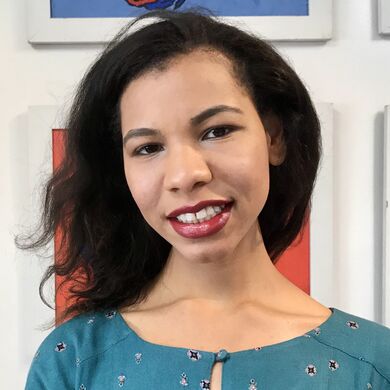
Momoh: I think there's an intense fear, especially with our Black boys, of them being victimized. And part of that is that we know people of color in general are more likely to be sexually assaulted and raped than white folks. And it's especially true for Black and Indigenous folks.
The messages we’ve been fed about men, especially Black men, and same-sex affection, there's also toxic masculinity and white supremacy playing into that, where you have Black men who have been hypersexualized and hypermasculinized. They have been stereotyped to be aggressors and violent. None of that says I can give you a hug. I can share my feelings with you. I can hold you when you're scared.
And then you add to that the unspoken traumas that a lot of us live with. You're just constantly wanting to keep your Black boys in particular from all the dangers that this world throws at them. That’s what I’ve noticed in my community. It forces our boys to grow up too quickly.
West: One of the things that I was able to recently discuss and talk about more openly was how my first sexual experience was ultimately rape, but I wasn't sure at the time. I had no tools to even know what was OK because we didn’t talk about sex in school. And in the instances when we did, it was always in a heterosexual context and focused entirely on pregnancy prevention. I think even for heterosexual children, to have relationships reduced to the prospect of having a baby or not, it doesn’t address the importance of affection, intimacy, consent, and when it's OK to be touched or not to be touched. I think it's a broader set of things that could be discussed. And I do think that in Black communities, we're often very protective. But sometimes that overprotectiveness really makes people more vulnerable.
Tarver: A lot of sexual health education may also have obstacles and limitations around discussing same-sex relationships because of state laws. In Alabama, you can only do so much because everything's taught from a preventative standpoint. Some educators may be very clinical and just talk about the basic things: how to prevent HIV, how to prevent pregnancy, using condoms. And the main rule is still abstinence, abstinence, abstinence.
So it's sometimes going to be hard to have those conversations in the classroom based on the laws, but also the school itself and the administration. Often it all comes down to the teacher and the conversations they want to have and trusting that they have the right resources and the right people to have those conversations with the students.
Rucker: One of the things that I see happening often with communities, specifically around HIV and the way in which we navigate that, is that folks oftentimes see HIV as a gay thing, period. It doesn't get to be a thing for anyone else. I know for a fact that folks are avoiding STI tests or HIV tests because that’s only something for gay folk.
I think a large piece of this is about education. But this education isn't playing out equitably in every space. This education continues to be disrupted by white supremacy in terms of who has access and resources.
West: There is a painful legacy of racism and discrimination within our medical systems including victimization of people of color, which has understandably created mistrust and health disparities within the Black community. What implications does this have for HIV education, prevention, and treatment?
Rucker: I saw a news article that said Black folk are much less likely to get the COVID vaccine. I know a part of it is just a lack of trust from Black communities of medical spaces, but then I also wonder, what are the systemic things that are playing out? Because this same thing is playing out for HIV. It’s playing out for diabetes. It’s playing out for all the health issues we can name. We can't ignore the fact that there are real systemic issues that are the reason why Black folk don't engage in HIV prevention and treatment the way in which we would want them to.
West: I think that's such a good point with regard to trust for our medical system and the implications for public health when we know there are these barriers. I heard Dr. (Anthony) Fauci talking about concerns around getting people to actually trust the COVID vaccine. But from an equity perspective, that means you need to put more resources into educating Black communities. Or do a campaign where you have influencers and key people that you offer the vaccine to, who are gatekeepers in your community. Or you have Black doctors and Black researchers who were a part of making the vaccine, speak to how they are a part of creating this solution. You have to think about it differently.
West: What have we learned from the COVID-19 pandemic that can be applied to how we think about HIV/AIDS education?
Rucker: To your earlier point about getting community leaders to engage in this work, I've seen that happening on a very local level here in St. Louis with organizations popping up. When I looked at the leadership, they're just community organizers, but they're getting these huge grants from the city and from counties. I think that community organizing can work and, at least in St. Louis, people are willing to give money toward that initiative to get into the communities.
I think this country is really hovering on a thermostat, where it’s so easy to maintain a comfortable temperature and keep doing things the same way we’ve been doing them for years. The pandemic showed me what interrupting that looks like. But when we come back to the table, we can't just keep doing the same stuff because that doesn’t feel right either.
I'm really thinking about how to push systems beyond what the status quo was before COVID. What are the things that we've seen over the past year that we thought we couldn’t do that are actually very possible? We just need to put in the time to actually make sure they are executed.
Momoh: There's a saying that narrative drives policy. And we have created this false narrative that Black people don't want the vaccine, that Black people aren't sheltering in place, that Black people aren't taking this seriously. It is excusing policies that are purposefully ignoring the people who are dying at the highest rates.
But we know what our communities need. We need people on the ground, we need organizers, and we need to be going out to our faith groups. We need to be paying people to do this work. It’s really not that hard. We need leaders to actually put money into the Black community and say, you already know how to do this.
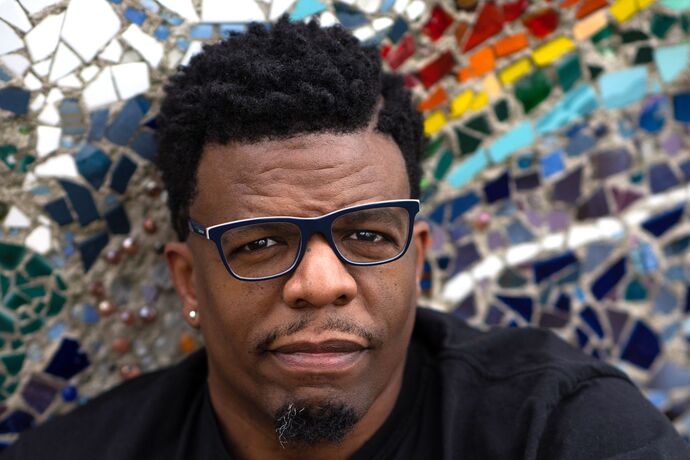
West: COVID-19 has forced a conversation between public health and education. When I was first starting at TFA and I wanted to go to conferences focused on young Black gay men and HIV, I was told by a few people that it wasn’t in my lane. That's public health. That's not your work at TFA. And I was like, well, but where are kids? They're in school. They're not at the public health department. So we have the best ability to impact what happens to kids by making HIV/AIDS prevention an education issue.
West: With that said, what could it mean for our Prism coalitions to think about inventive ways to provide students with opt-in sexual health education and to ensure parents and teachers know about this option so that students have access to this information if they aren’t getting it in school?
Tarver: Our students know more than we think, and it's a matter of giving our youth the stage and the voice to ask the questions. It's a matter of providing a space that feels supportive and where no questions are dismissed, but it is also age-appropriate and includes the right people to answer the questions.
It can be a Zoom call. It could be just making yourself available to answer questions by email or chat to hear what’s on students’ minds. The main thing is to let students know that you are there for them. It makes a world of difference.
All it takes is one person to influence in that way. And for me, it's just a matter of us continuing to influence each other, to be the best you can be in educating people on things that matter to us to save our communities. Because we're all trying to save ourselves, especially now, more than ever.
We want your feedback. Share your thoughts on this story or suggest other stories for us to pursue.
Sign up to receive articles like this in your inbox!
Thanks for signing up!
Content is loading...


